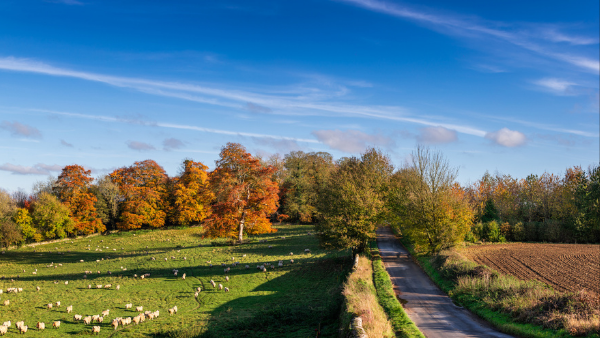Author
Last week DEFRA launched its consultation on proposed changes to the Basic Payment Scheme as England transitions from now until 2027 from direct payments to the new Environmental Land Management Scheme (ELMS). Amongst the most significant suggestions is one designed to improve productivity by encouraging older farmers to retire through the lump sum exit scheme – see our previous article “Agriculture Act 2020: Will the Lump Sum Scheme provide an exit?“.
A further proposal is to delink Basic Payment Scheme (BPS) payments from the farming of land from 2024 onwards. This would reduce administration for DEFRA as it rolls out ELMS across England and would provide farm businesses with additional funds for investment or to cushion any reduction as the business moves onto ELMS. In this article we will summarise these delinking proposals and consider the initial implications for farm businesses.
What delinking means
The consultation confirms DEFRA’s intention to introduce de-linked payments in 2024. As we know, BPS recipients will not have to continue farming or hold entitlements in order to receive the payments. This is not an opt in or opt out. De-linking will happen for all farmers.
Apart from no longer having to farm or even occupy land, cross compliance obligations under the BPS will cease (although these will continue under Countryside Stewardship (CS) if land is affected by a CS agreement).
Reference period
Inevitably there will be a reference period, although this appears to be an issue over which DEFRA do not yet have a clear view. They invite views on whether it should be 2022 only, the same period as the lump sum scheme (2018 – 2020), or 2018 – 2022. They clearly state that claimants must still be farming at the end of the reference period and in 2023 (if the reference period ends earlier than that). There is no further detail on the extent of the farming operation that is needed at that stage.
Business restructuring
DEFRA also say that there will be rules and guidance to assist businesses that change during the reference period. Of course, some businesses will have already altered in nature and others may be contemplating changes in the coming months and years. Careful thought will need to be given in the course of any restructuring as to how the delinked payment can be secured.
As with lump sums, DEFRA warn that measures will be put in place to prevent delinked payments being made to businesses, which have been split or restructured artificially to maximise claims of delinked payments.
New entrants into the industry after the reference period will not be eligible for delinked payments, however DEFRA will provide funding for new entrants, during the early years of the transition period, under other schemes.
Reference amount
The reference period will be used to establish a reference amount, based on BPS payments received during that period. If DEFRA choose a reference period of more than one year, they will average the payments across those years. That reference amount will then be used to calculate the de-linked payments for each year 2024 – 2027.
There will be progressive reductions applied as the payments are phased out over that transition period. It will be interesting to see how the introduction of de-linked payments impacts on rent reviews over these years.
The consultation does not give any detail on the tax treatment of de-linked payments, however it must be likely that these payments will continue to be treated in the same way as current BPS payments.
Complications
The prospect of receiving unconditional payments will obviously be welcomed by all existing farm businesses. However there are inevitably issues which could complicate receipt of these sums. As with the lump sum proposals and as we saw time and again whenever any new form of quota, premium rights or entitlements were allocated, there will always be businesses which, for whatever reason, do not fit squarely into the scheme that is planned. Obviously businesses which are in the process of expanding and taking on more land could well lose out if the average of payments in the reference years do not match up to current levels of claim. Furthermore, any business which has set up since 2018 could find itself ineligible for delinked payments, depending on the rules which DEFRA finally set.
Similarly any business which has restructured, during or since whatever reference period DEFRA eventually selects, could face difficulties arising from changes of name and structure. If there is a change between the BPS claimant during the reference period and the business claiming delinked payments, having to demonstrate that it is still farming at the end of the reference period or in 2023, as appropriate, then there is a risk that the new business would not qualify for delinked payments.
Consider for example a partnership between two brothers, which has been dissolved and the two brothers have continued to farm separately as sole traders. On the face of DEFRA’s new guidance those new businesses might not qualify for delinked payments. DEFRA may in due course address this issue and allow the parties to agree which business will receive the delinked payments, or alternatively the claim may be allowed to be split according to the land occupied by each brother. However whether either of these options will provide fairness in the situation will depend on the individual circumstances and there will be some cases in which this could result in a dispute.
Conclusion
Unlike the lump sum exit scheme which may open in 2022, the delinked payments proposal is planned for 2024 onwards. However with entitlement potentially affected by a period running from 2018 to 2023, any farm businesses which have made structural or other changes within that period or which have current plans to restructure, take on extra land or move to another farm should consider these issues very closely and plan accordingly.

